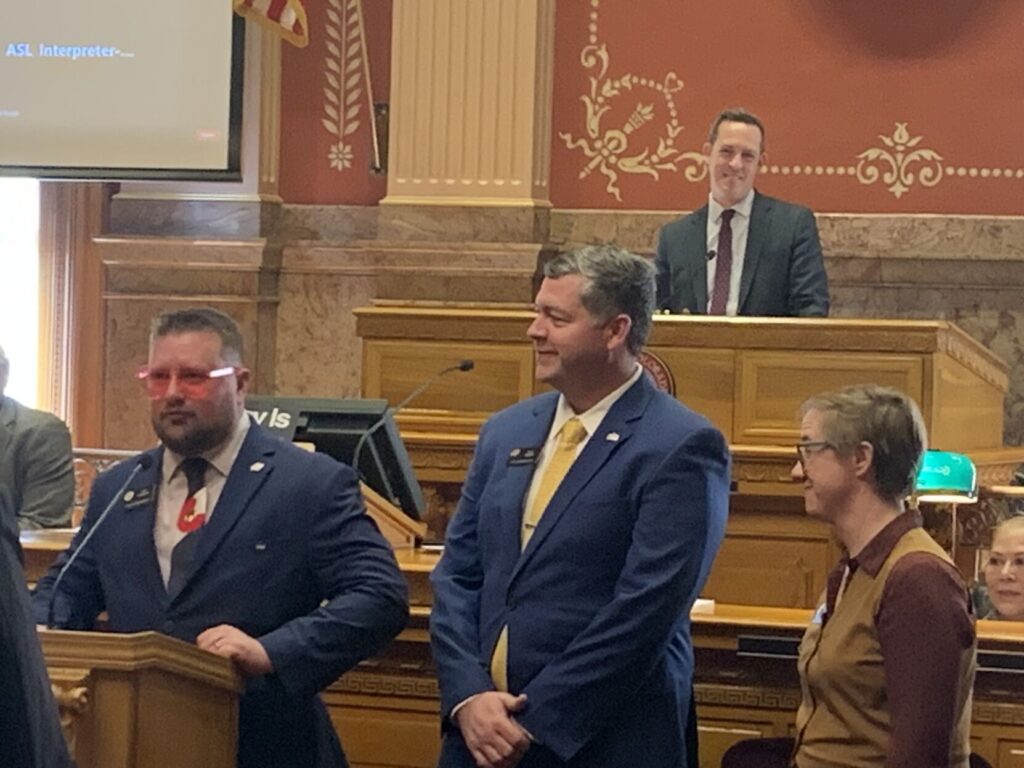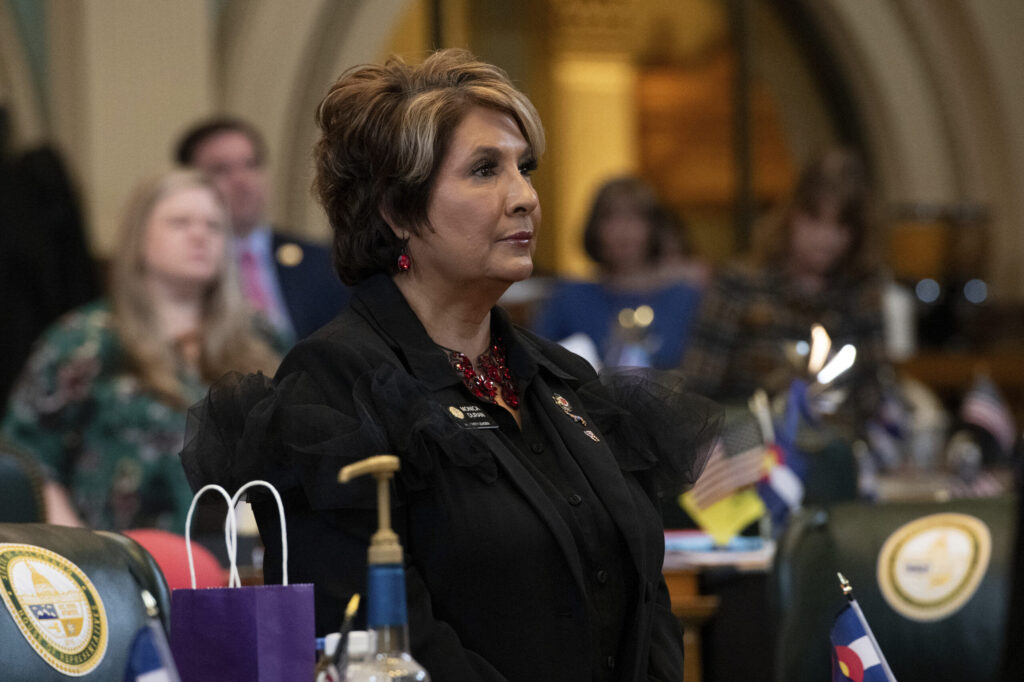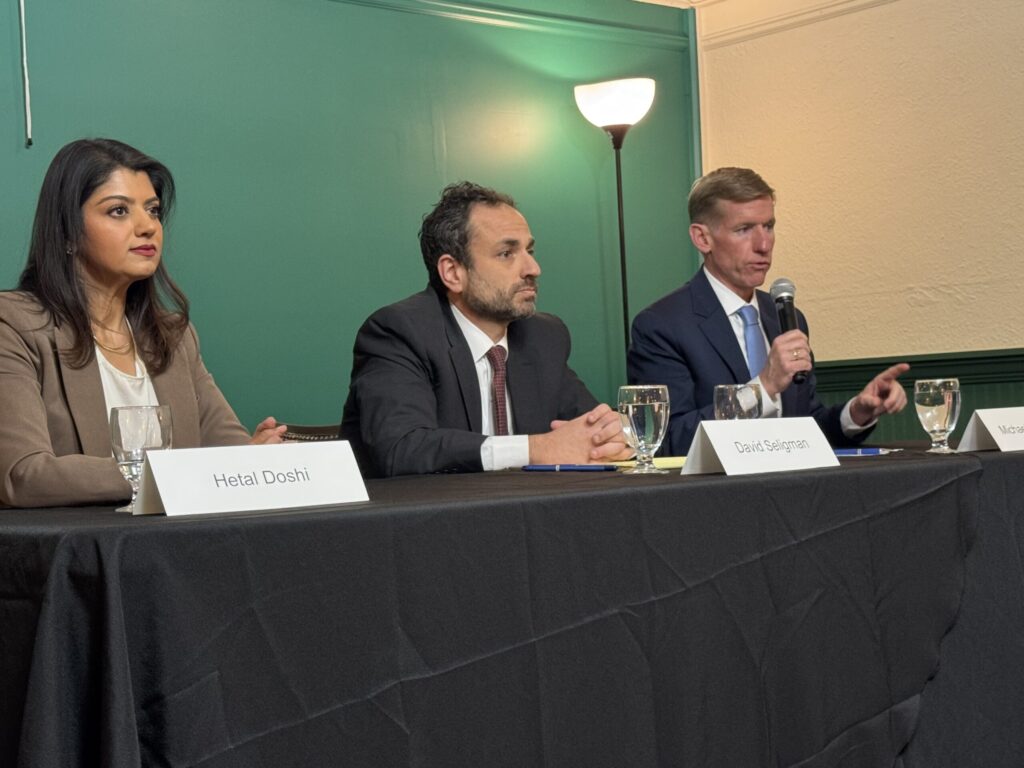Colorado business trade group wants Jared Polis to veto 3 bills

A business trade group wants Gov. Jared Polis to veto three bills, including legislation to ban employers from asking for an applicant’s age.
The Colorado chapter of the National Federation of Independent Business asked Polis to veto a proposal on the state’s equal pay mandates and a bill that updates the definition of harassment and specify that it does not need to be “severe or pervasive” to constitute a discriminatory or unfair practice.
Tony Gagliardi, the state director for NFIB, called the measures “extreme workplace policies.”
“Unfortunately, the negative impact of these one-size-fits-all, extreme workplace policies increase the chances of an employer being charged with a workplace complaint and unfortunately small businesses are the most targeted,” he said.
Under Senate Bill 58, employers are banned from asking for an applicant’s age, date of birth or graduation date on an application. If signed into law, the requirements start in July 2024.
“This bill creates a fairer playing field for all workers by ensuring that applicants are judged by their merits and qualifications, instead of their age,” said bill sponsor Rep. Mary Young, D-Greeley. “We frequently think of this as applying to older Coloradans. It also applies to younger Coloradans. Age discrimination is a real problem.”
Colorado approved the Equal Pay for Equal Work Act in 2019, which took effect on Jan. 1, 2021. It included mandates intended to even the playing field for workers, such as requiring employers to notify employees of promotion opportunities, including pay or a pay range in job postings and allowing employees to sue employers for gender-based pay discrepancies.
Senate Bill 105 would require the Department of Labor and Employment to investigate pay inequities and enforce equal pay mandates. The bill would also extend the maximum back pay period for pay inequalities to six years and allow employers to not notify employees about career development changes that are not technically promotions or jobs that other candidates could be considered for.
“It took us 39 years to get to the place that we got to in 2019,” said bill sponsor Rep. Serena Gonzales-Gutierrez, D-Denver. “This bill is taking some of the things we’ve learned over the last few years with the implementation of the Equal Pay for Equal Work Act and clarifying some things.”
In addition to updating Colorado’s definition of harassment, Senate Bill 172, if enacted, would also add marital status as a protected class, dis-incentivize the use of unlawful non-disclosure agreements, and prohibit employers from refusing to accommodate employees if they have a disability that “has a significant impact on the job.”
“We need a modern definition of harassment,” said bill sponsor Sen. Faith Winter, D-Westminster. “There’s been instances where, within our courts and within case law, rape was not pervasive enough to create an unsafe work environment because it was a one-time-only instance. There’s been instances where the use of the N-word wasn’t severe enough to create an unsafe work environment.”
In a letter to Polis, NFIB’s Gagliardi said the proposals would “bring harm to employers and those looking for work.”
He said it’s already a common practice to not ask for someone’s age on an initial job application.
He expressed fear that the latest equal pay for equal work requirement out of the legislature would “disrupt the markets for those looking to work.”
Insofar as the harassment legislation, Gagliardi said it duplicates current law in many places.
“However, the bill goes further to redefine the definition of harassment and to order the Colorado Civil Rights Division to include on any intake or intake form of a complaint the option to choose harassment as a condition of the complaint,” he said.
Reporter Hannah Metzger contributed to this report.














